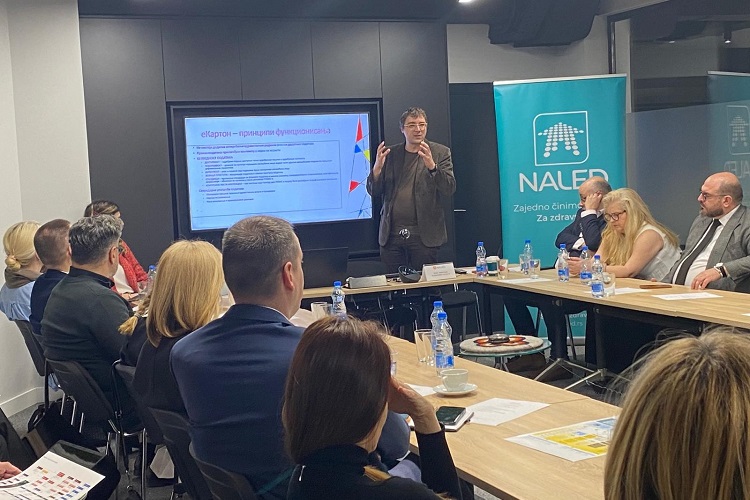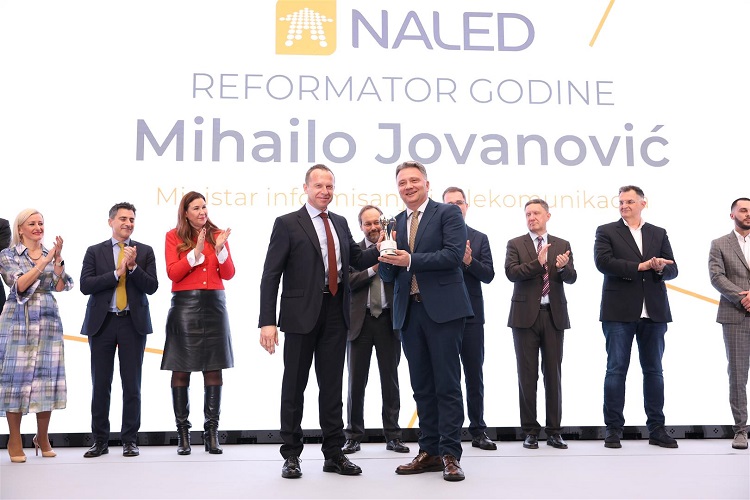[Hrvatska riječ] Important reforms are behind us
The idea and vision upon which NALED was founded – to serve as an independent association of businesses, local governments, and the civil sector, promoting and charting reforms in the public interest and for the benefit of society as a whole – remains at the core of our organization and guides us today.
For years, we have been initiating changes and supporting reforms to make business operations easier, the state more efficient, and citizens' lives better. As someone who has been with NALED from the very beginning, it seems to me that the path the organization has taken and what it represents today can be vividly illustrated by the following numbers: in less than two decades, we have gathered 350 members, more than 22,000 entrepreneurs and small businesses are united through NGOs in our membership, we collaborate with over 100 institutional and international partners, and we have completed around 215 projects of economic development and 620 analyses and publications," explains Violeta Jovanović, Executive Director of NALED, for the portal Hrvatska riječ.
She adds that perhaps the best testament to NALED comes from how they are viewed by their members and partners, representatives of the state, and leaders of the international community, such as European Union Ambassador Emanuel Giaufret, who, at their recent annual conference on economic reforms, said "organizations like NALED and publications such as the Grey Book, which provides recommendations for removing bureaucratic obstacles to business, set a clear sequence of steps that can be taken to unlock Serbia's potential and ensure that reforms are sustainable and effective."
How does NALED operate, how do you define the most significant obstacles and problems, and how do you formulate recommendations for addressing them? In other words, what is the path from defining recommendations to their acceptance and implementation?
"Our key word is dialogue, and our motto is 'together we make a difference.' As an independent, non-partisan, nonprofit organization whose membership includes the private, public, and civil sectors, our mission is to connect all parts of society to synergistically identify common problems and obstacles to economic development. In all proposals and solutions we put forward, the priority is, as I've already mentioned, the public interest, but in a way that results from dialogue and compromise among stakeholders. Without that, there is no success. That's why in NALED, we practice public-private dialogue. There, various topics often spark debates, where the business sector and local government often see very different ways to solve a problem. Once we agree on the solutions, it's important to present them to the public and decision-makers to create a willingness to change things. Because reforms are always unpopular, especially while they are being implemented. Once they are completed and successful, we quickly forget about them. That's why the Grey Book is important, as it speaks about what has been done, where missed opportunities lie, and what the priorities are."
Over the past 16 years, you have presented 320 unique recommendations, of which, as you state, more than half have been partially or fully resolved. Which recommendations are the easiest and which are the most difficult to realize and implement?
There are no easy reforms. Our job is to do thorough work; behind all realized recommendations stands the hard work of our members and the NALED Executive Office team, which now numbers around 100 people. However, it would certainly be much harder to achieve them if in previous years ministries had not shown openness to our suggestions, or if there weren't media outlets following our work and urging institutions to act. Important reforms that have made Serbia a better place to live and work are behind us. I'll mention just a few: the introduction of eInvoicing and digital fiscalization, a major cadastre reform, the introduction of ePrescriptions in healthcare, electronic issuance of building permits, which has revolutionized investments in Serbia. Of course, there is still much work ahead. Reform isn't completed when a law is amended; it only begins there, with the application of regulations and training different bodies to implement these solutions."





